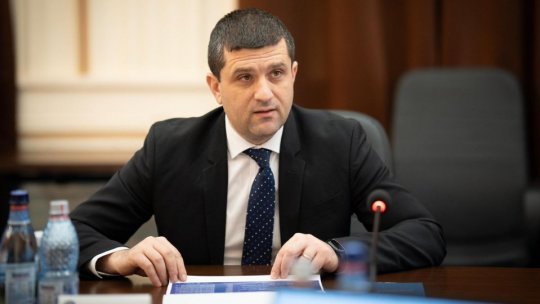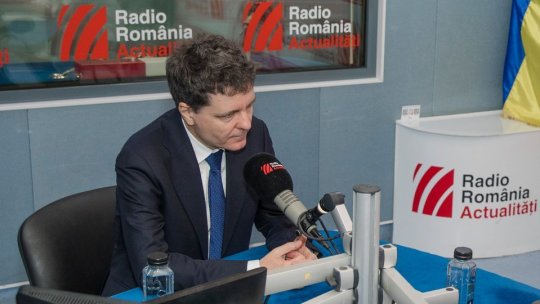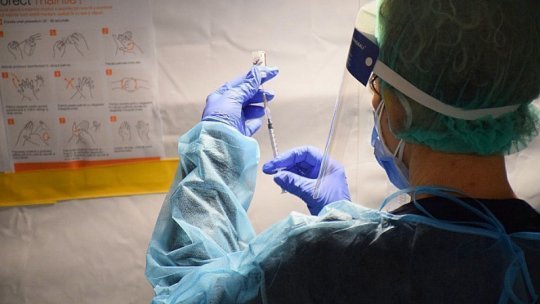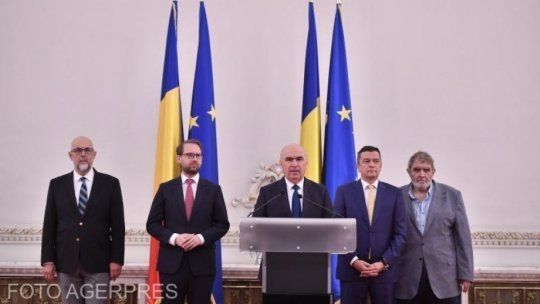Elections for the European Parliament: 23-26 May 2019
Once in every five years, citizens in all 28 Member States of the European Union directly elect their representatives in the European Parliament.
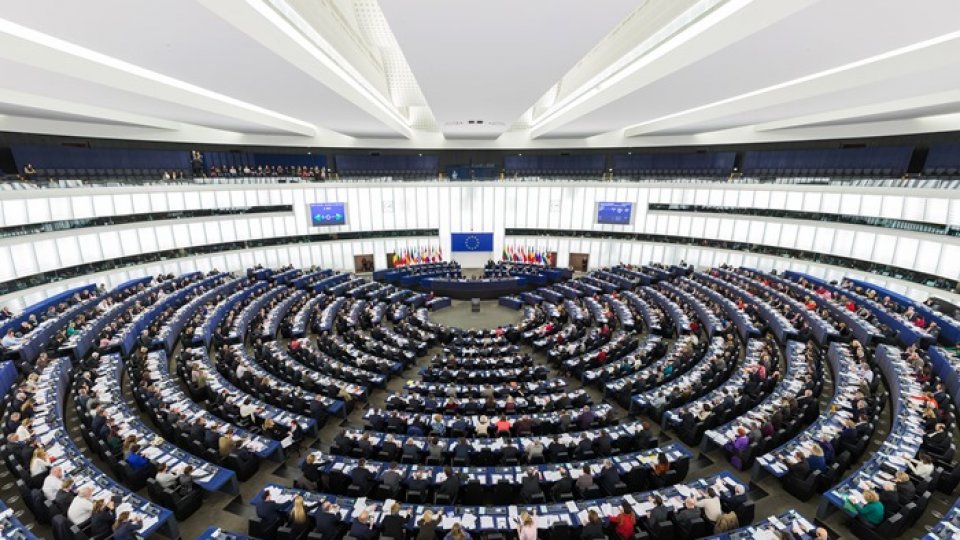
Articol de Miruna Matei, 24 Aprilie 2019, 13:00
Once in every five years, citizens in all 28 Member States of the European Union directly elect their representatives in the European Parliament, one of EU’s two law-making bodies (alongside the Council of the European Union), the second-largest democratic electorate in the world (after the Parliament of India). This year, elections for the European Parliament – first after Brexit - are scheduled for 23-26 May.
People in the EU will elect 705 Members to form the new European Parliament that will represent them until 2024. Parliament is currently composed of 751 members (MEPs), which is the maximum number allowed by the EU treaties. Newly formed European Parliament after elections in May 2019 will elect a new President of the European Commission.
Election Day in each EU Member State
Voting in the European Elections means having a say on the direction the EU takes for the next five years in areas such as international trade, security, consumer protection, fighting climate change, and economic growth. MEPs not only shape new legislation, but also scrutinize other EU institutions.
Although there are some common rules regarding the elections, some aspects can vary by country, such as whether it is possible to vote by mail or from abroad. Specific details such as who the candidates will be and where local polling stations will be can be found on each Member State national election authority.
Election Days: 23 May: The Netherlands, UK, 24 May – Ireland, 25 May: Latvia, Malta, Slovakia; 16 May: Austria, Belgium, Bulgaria, Croatia, Cyprus, Denmark, Estonia, Finland, France, Germany, Greece, Hungary, Italy, Lithuania, Luxembourg, Poland, Portugal, Romania, Slovenia, Spain, Sweden. : 24 or 15 May, Czech Republic.
European Parliament
Locations: Strasbourg (France), Brussels (Belgium), Luxembourg (General Secretariat – administrative offices).
European Parliament (EP) is the only parliamentary institution of the European Union (EU) that is directly elected by EU citizens aged 18 or older. Together with Council of the European Union (also known as the 'Council') - which should not be confused with the European Council and the Council of Europe - it exercises the legislative function of the EU. Since 1979, it has been directly elected every five years by European Union citizens, using universal suffrage.
Although the European Parliament has legislative power, as does the Council, it does not formally possess legislative initiative (prerogative of the European Commission), as most national parliaments of European Union Member States do. The Parliament is the "first institution" of the EU (mentioned first in the treaties, having ceremonial precedence over all authority at European level), and shares equal legislative and budgetary powers with the Council (except in a few areas where the special legislative procedures apply). It likewise has equal control over the EU budget. European Commission, the executive body of the EU (it exercises executive powers, but no legislative ones other than legislative initiative), is accountable to Parliament. In particular, Parliament elects the President of the Commission, and approves (or rejects) appointment of the Commission as a whole. It can subsequently force the Commission as a body to resign by adopting a motion of censure.
Current President of the European Parliament (Parliament's speaker) is Antonio Tajani (EPP), elected in January 2017. He presides over a multi-party chamber, the two largest groups being the Group of the European People's Party (EPP) and the Progressive Alliance of Socialists and Democrats (S&D). The President represents Parliament to other EU institutions and the outside world and gives the final go-ahead to the EU budget.
How does the European Parliament work?
EU Parliament's work comprises two main stages: Committees - to prepare legislation. The Parliament numbers 20 committees and two subcommittees, each handling a particular policy area. Specialized Committees examine proposals for legislation, and MEPs and political groups can put forward amendments or propose to reject a bill. These issues are also debated within the political groups. Plenary sessions – to pass legislation. This is when all the MEPs gather in the Chamber to give a final vote on proposed legislation and amendments. Normally held in Strasbourg for four days a month, but sometimes there are additional sessions in Brussels.
Composition of the European Parliament
Number of Members of the European Parliament (MEPs) for each country is roughly proportionate to its population, but this is by degressive proportionality: no country can have fewer than 6 or more than 96 MEPs and the total number cannot exceed 751 (750 plus the President). MEPs are grouped by political affiliation, not by nationality.
There are currently 8 political groups in the European Parliament.
Group of the European People’s party (Christian Democrats)
Group of the Progressive Alliance of Socialists and Democrats in the European Parliament
European Conservatives and Reformists Group
Group of the Alliance of Liberals and Democrats for Europe
Confederal Group of the European United Left – Nordic Green Left
Group of the Greens/European Free Alliance
Europe of Freedom and Direct Democracy Group
Europe of Nations and Freedom Group
25 Members are needed to form a political group, and at least one-quarter of the Member States must be represented within the group. Members may not belong to more than one political group. Some Members do not belong to any political group and are known as non-attached Members.
Distribution of seats in the European Parliament
Distribution of seats in the European Parliament is set to change after the next European Elections as a result of Brexit. New rules formally adopted by EU leaders at their summit in Brussels on 28-29 June 2018 will come into force in time for the European elections to be held on 23-26 May in 2019. New distribution is based on an earlier Parliament proposal. MEPs gave their consent to the decision on 13 June. It will lead to a reduction in the overall number of seats after the UK's withdrawal from the EU comes into force, although some EU countries will get some additional MEPs. At the moment the Parliament boasts 751 seats,. Following the decision, 27 of the UK's 73 seats will be redistributed to other countries, while the remaining 46 seats will be kept for future enlargements. This means the number of MEPs to be elected will be 705. Distribution of seats: no losers. Belgium (21 in 2014, 21 in 2019), Bulgaria (17 in 2014,17 in 2019), Czech Republic (21 in 2014, 21 in 2019), Denmark (13 in 2014, 14 in 2019), Germany (96 in 2-14, 96 in 2019), Estonia (6 in 2014, 7 in 2019), Ireland (11 in 2014, 13 in 2019), Greece (21 in 2014, 21 in 2019), Spain (54 in 2014, 59 in 2019), France (74 in 2014, 79 in 2019), Croatia (11 in 2014, 12 in 2019), Italy (73 in 2014, 76 in 2019), Cyprus (6 in 2014, 6 in 2019), Latvia (8 in 2014, 8 in 2019), Lithuania (11 in 2014, 11 in 2019), Luxembourg (6 in 2014, 6 in 2019), Hungary (21 in 2014, 21 in 2019), Malta (6 in 2014, 6 in 2019), The Netherlands (26 in2014, 29 in 2019), Austria (18 in 2014, 19 in 2019), Poland (51 in 2014, 52 in 2019), Portugal (21 in 2014, 21 in 2019), Romania (32 in 2014, 33 in 2019), Slovenia (8 in 2014, 8 in 2019), Slovakia (13 in 2014, 14 in 2019), Finland (13 in 2014, 14 in 2019), Sweden (20 in 2014, 21 in 2019), United Kingdom (73 in 2014, 0 in 2019 – if UK leaves officially).
European Parliament and citizens
If European citizens want to ask the European Parliament to act on a certain issue, they can petition it (either by post or online). Petitions can cover any subject which comes under the EU's remit. To submit a petition, one must be a citizen of an EU Member State or be resident in the EU. Companies or other organisations must be based here. Other ways of getting in touch with European Parliament include contacting local MEP or the European Parliament Information Office in each Member State.
Citizens' App
Citizens’App, developed by European Parliament, provides insight into how the EU shapes daily lives of European citizens and encourages them to get involved in its future. App also looks to the future with research papers on issues such as climate change, cyber defence and foreign relations, which explain trends that will transform European societies in the coming years. The app is available in all of the EU's official 24 languages. It can be downloaded for free from the Apple App store or Google Play.
Source: European Parliament





